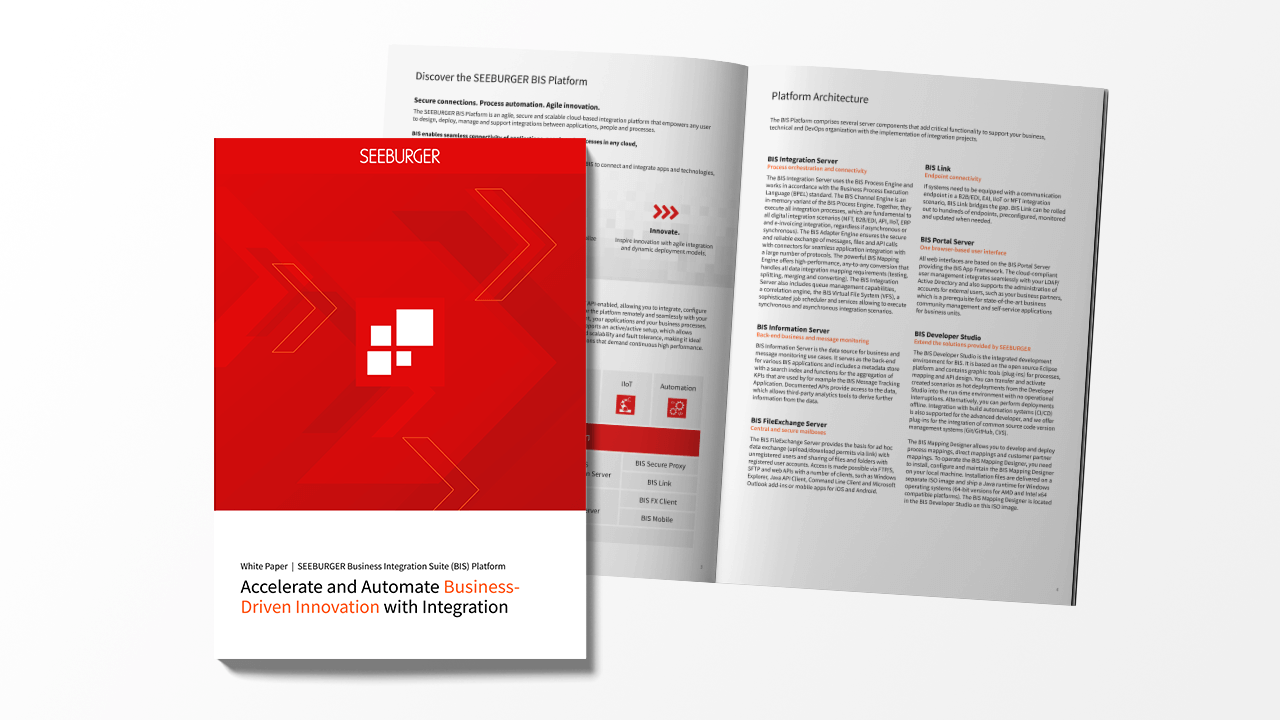
What Is AS4?
AS4 (Applicability Statement 4) is a message protocol based on web services to securely exchange B2B messages between trading partners. The protocol was developed by the technical committee of OASIS (Organization for the Advancement of Structured Information Standards) for ebXML Messaging Services. AS4's web services capability gives it the opportunity to develop into a cloud-based communication standard.
Comparison AS2 and AS4
AS4 and AS2 are very similar by design. During the development of AS4, all advantages of AS2 were analyzed, worked out and inspired by them. In contrast to AS2, AS4 works within a web service context and also has better interaction patterns and delivery notifications. In addition, compared to AS2, AS4 has the option of actively pulling messages by the recipient, since the AS4 server is permanently active.
Main features of the AS4 messaging standard
- Interoperability: The AS4 messaging standard is defined based on the OASIS standard
- Security: A subset of web services security features is used to ensure the non-repudiation of the message and data confidentiality
- Reliability: by exchanging confirmations, AS4 ensures a one-time delivery
- Independence from use: any type of payload (EDI, XML, ...) can be exchanged
AS4 Messaging Service Handler
The Messaging Service Handler (MSH) is responsible for setting up the AS4 message exchange with the remote station on the sending or receiving side. Communication with the remote station must comply with AS4 specifications and be able to communicate with an internal business application.

Message types of AS4
The ebMS 3.0 specification defines the following message types defined within the AS4 usage profile:
The areas of use of AS4
AS4 is increasingly being used in markets that use a service-oriented architecture for B2B messaging. These include the retail trade, the healthcare and the utilities sector.
For example, the European gas network operators (ENTSOG) have already defined their own usage profile in 2015. Other uses that rely on AS4 include:
- Peppol (Pan-European Public Procurement Online)
- e-CODEX (e-Justice communication via online data exchange)
- ENTSOG (European Network of Transmission System Operators for Gas)
- EPREL (European Product Registry for Energy Labelling)
- JEITA (Japanese Association of Electronics and Information Technology Industries)
- Superstream Pensions
- ATA (International Air Transport Association)
Learn more about how SEEBURGER AG offers its customers an AS4 gateway for various purposes.
What are the general advantages of AS4?
FAQ MaKo AS4
General
- AS4 communication replaces AS2 and email communication in the electricity sector.
- All market participants need to set up a new connection to each of their communication partners.
- AS4 communication to be encrypted with ECC Brainpool (elliptic curve cryptography).
- Certificates are used within the smart meter public key infrastructure (PKI).
- Participants will need to obtain new certificates.
- MaKo to become part of the smart meter public key infrastructure (SM-PKI).
- Private keys must be secured in the hardware security module (HSM).
- Take a look at this SEEBURGER AS4 blog article to discover more.
Dates
All market participants are required to be able to communicate via AS4 starting October 1, 2023. SEEBURGER does not know how the BNetzA will deal with market participants who do not meet the deadline.
AS4 profile
• You need a hardware security module (HSM) to generate and store private keys.
• You need new certificates from the Federal Office for Information Security’s smart meter public key infrastructure.
HSM
For the MaKo AS4 service, SEEBURGER opted for an HSM certified for the smart meter PKI because we want to provide our customers with proof of compliance with the requirements for the cryptography module at any time. An HSM certified according to the PKI specifications fulfills the requirements and can be proven by the certification and the manufacturer's declaration.
Certificates
- You can find the relevant BSI documents in the list below:
Migration scenarios
However, essentially “the market has to organize itself”. You are therefore expected, to plan time for queries and delays into your project plan.
However, we recommend monitoring these emails so that market participants who have supposedly switched to AS4 do not send them to the mailbox. As of April 1, 2024, according to BNetzA specifications, you must not communicate via email anymore and hence the mailbox shall be closed down.
This temporary email communication will be carried out in mutual agreement and as soon as the fault has been rectified, the system will be switched back to AS4 in a likewise mutual agreement. This regulation applies to the changeover phase.
Other
The application help is to be seen as a recommendation. The migration period runs until March 31, 2024. However, you may consider migrating as many partners as soon as possible.
Therefore, you must separately store and continuously update all data per MP-ED for each of your market partners.
However, since the AS4 service is designed on the basis of the specification for MaKo in the electricity sector and the requirements for schedule management were not known at this time, this use case is not yet in scope.
Connection to the SEEBURGER AS4 Cloud Service
"With such a system structure, care MUST be taken to ensure that the data exchange between the service provider and the client has a security level comparable to the security mechanisms defined in [TR-03116-3].” TR-03116-3 refers to TR-02102, which states what is “secure” and for how long from the BSI’s viewpoint.









